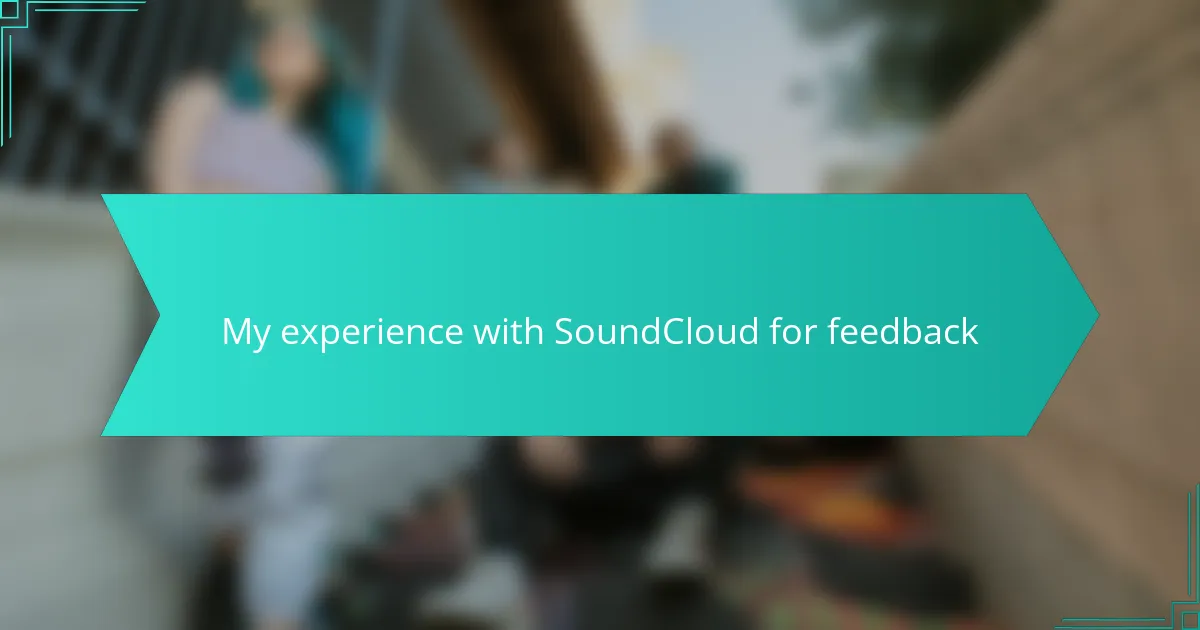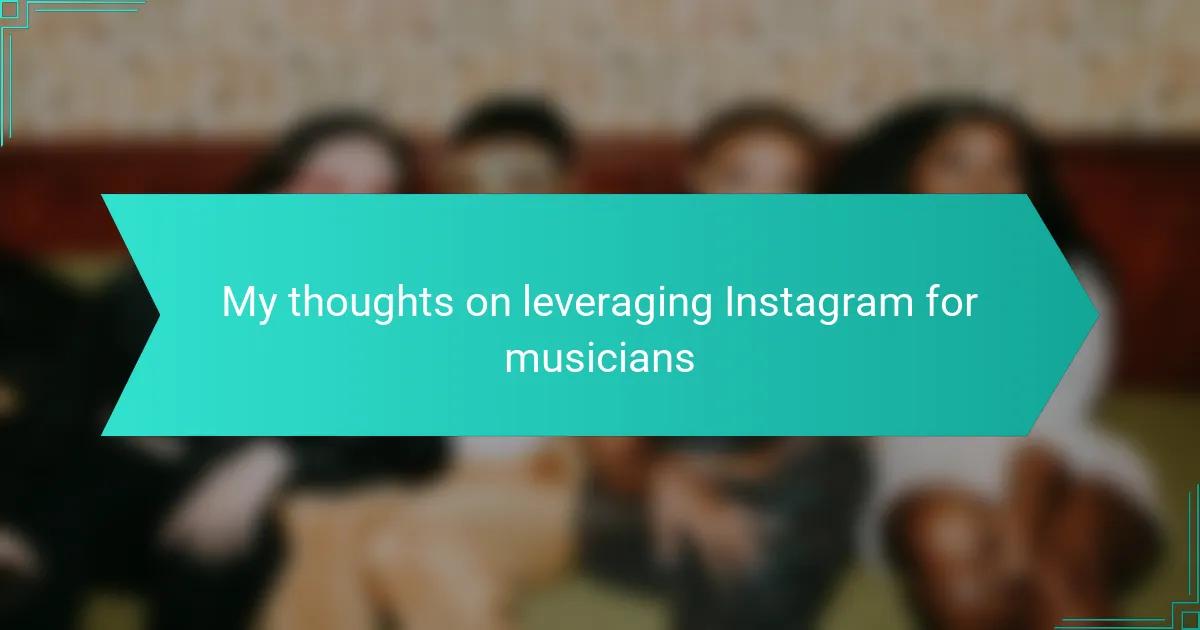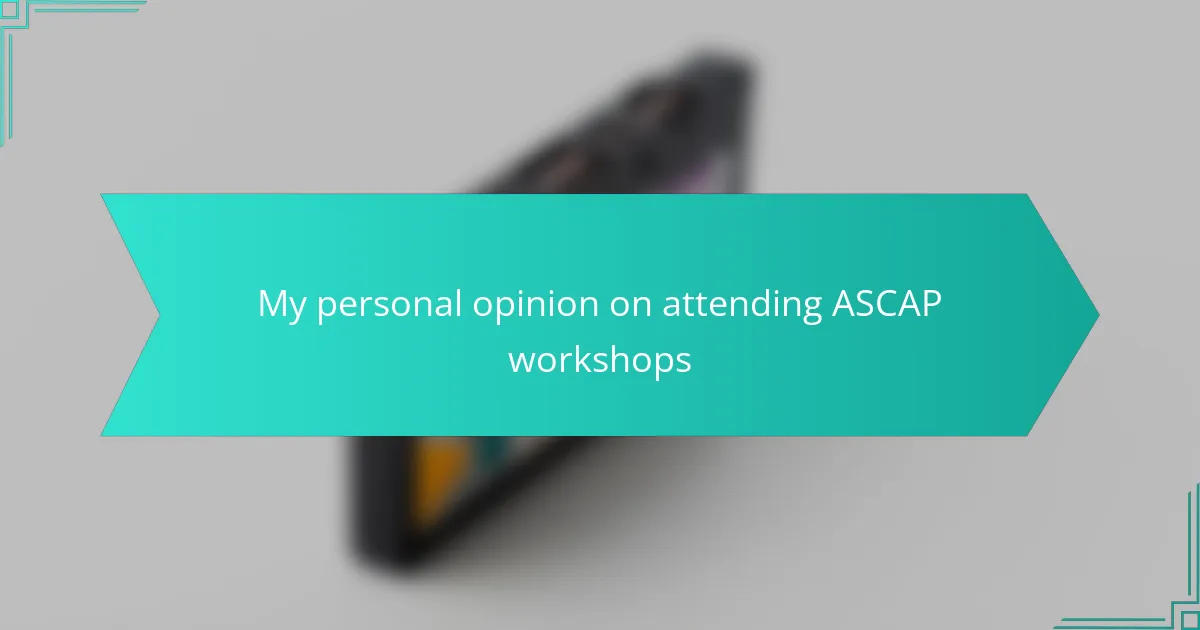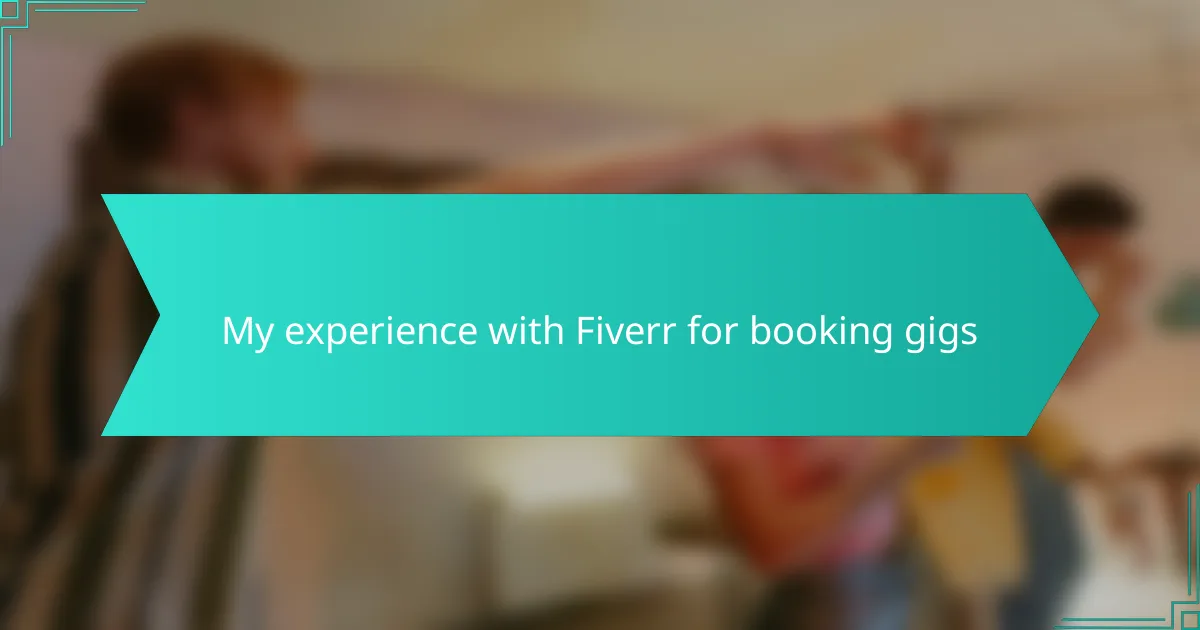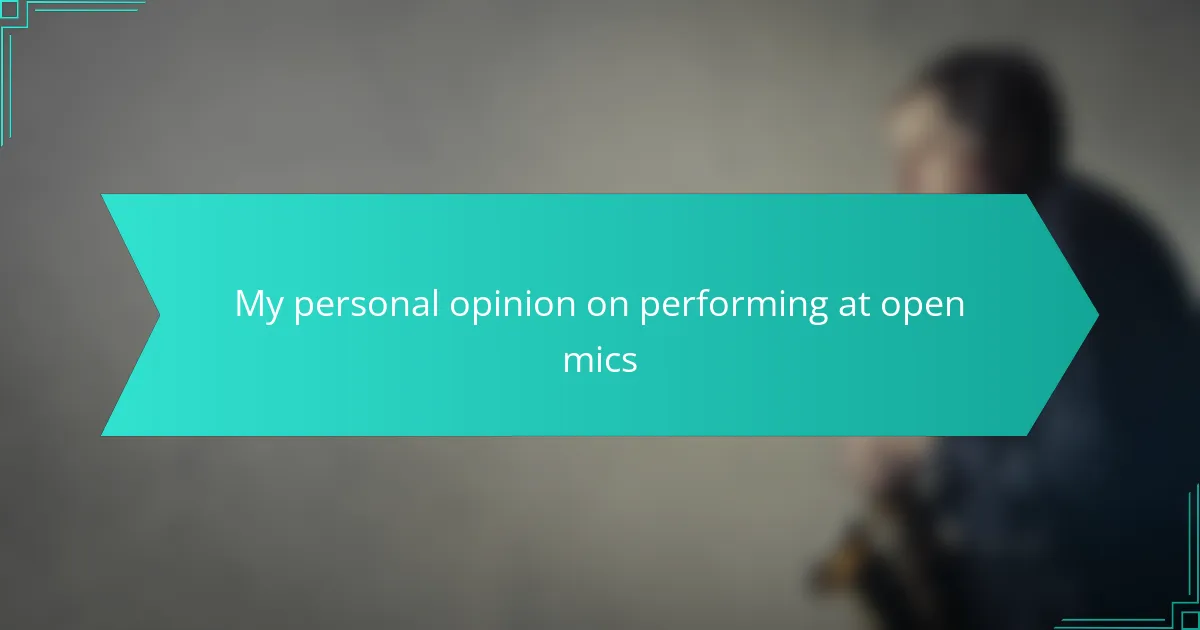Key takeaways
- Engagement with fellow musicians enhances opportunities for feedback and collaboration.
- Constructive criticism is essential for growth and can come from unexpected sources.
- Optimizing your music profile on platforms like SoundCloud boosts discoverability and community connection.
- Valuing quality feedback over quantity leads to more meaningful artistic development.
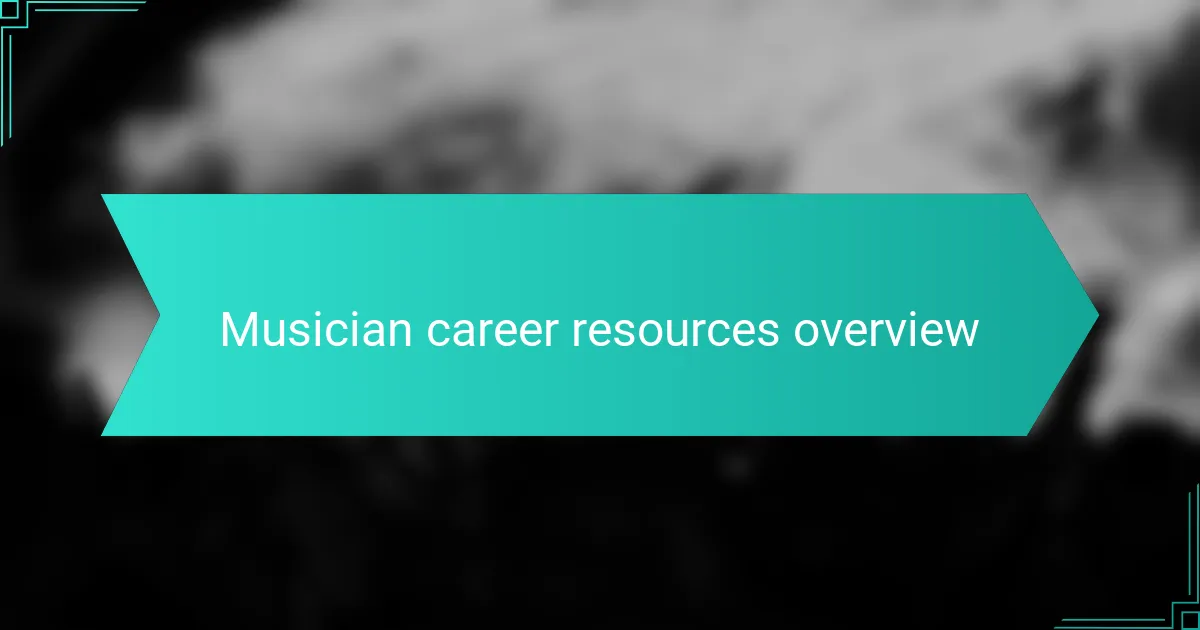
Musician Career Resources Overview
Navigating the musician’s journey can be daunting, but that’s where career resources come in. I remember feeling lost in the early stages of my music career, unsure about how to promote myself or where to find reliable feedback. It was through discovering online platforms and communities that I realized how much support was available.
One of the most valuable resources is the wealth of information on social media and music-sharing platforms. For instance, I once uploaded a track to have it critiqued by others, and the constructive feedback I received was transformative. Have you ever wondered how much your music could grow just by connecting with like-minded individuals?
Additionally, networking events and workshops play a crucial role in building a musician’s career. I can still recall attending my first local music showcase; it opened my eyes to a network of musicians and industry professionals eager to help one another. Looking back, I see how these experiences shaped my path, underscoring the importance of utilizing every resource available to us as artists.
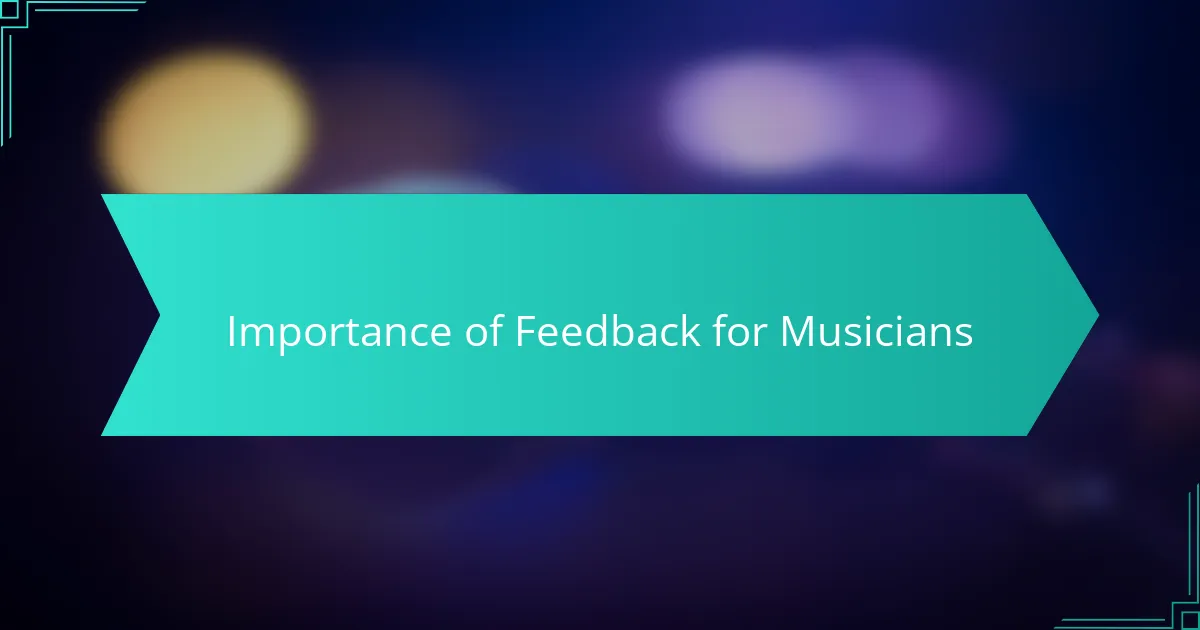
Importance of Feedback for Musicians
Feedback is an essential pillar in a musician’s growth. I vividly remember sharing my first song on SoundCloud, nervously awaiting the opinions of others. The moment I received thoughtful critiques, it felt like a much-needed breath of fresh air; the honesty pushed me to refine my sound and approach.
Constructive feedback offers insights that we often overlook ourselves. I was surprised to see patterns in what listeners enjoyed or found unappealing in my tracks. Isn’t it fascinating how a different perspective can shine a light on strengths and weaknesses we may be blind to?
Moreover, engaging with listeners creates a sense of community and support. When someone took the time to leave a detailed comment on my work, I felt validated and motivated to continue creating. It’s this back-and-forth interaction that not only helps us grow but also deepens our connection to our audience. Wouldn’t you agree that valuing feedback fosters a collaboration that can lead to innovation in our music?
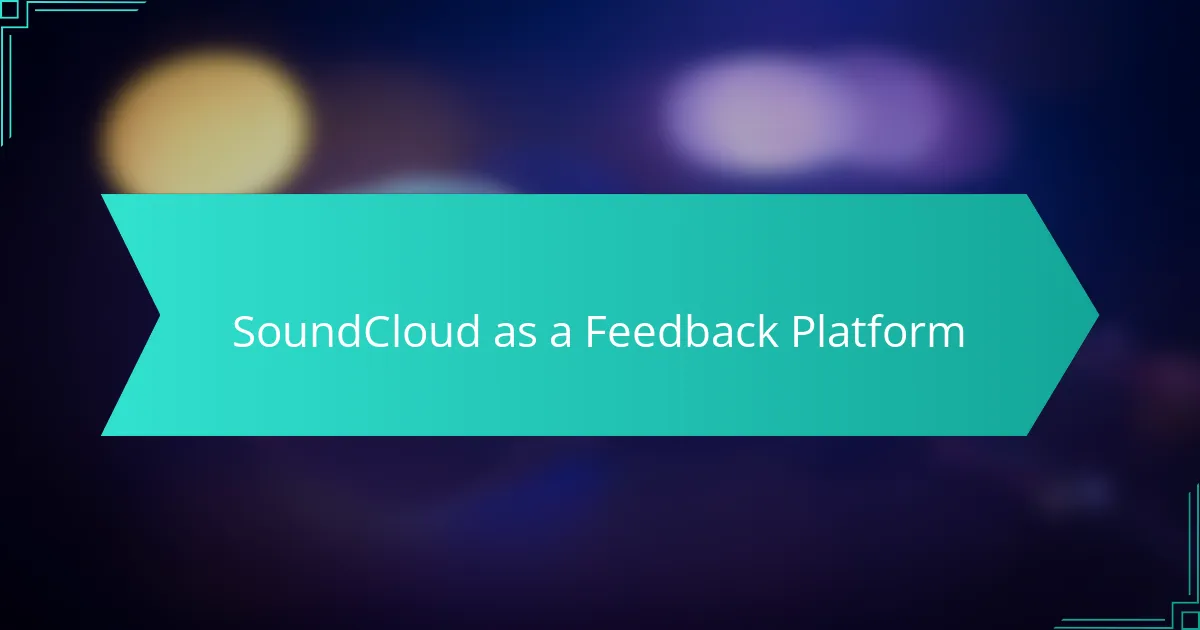
SoundCloud as a Feedback Platform
When I first started using SoundCloud, I saw it as a way to share my music, but I quickly discovered its potential as a feedback platform. Listening to the comments and reactions from other musicians and listeners helped me grow in ways I hadn’t anticipated. The ability to receive real-time feedback made it feel like I was part of a supportive community, where everyone’s input was valuable in shaping my sound.
The interaction on SoundCloud is unique; you can leave comments at specific timestamps, allowing for targeted feedback. This feature turned out to be a game-changer for me. There’s a certain thrill in hearing exactly what resonated with listeners and what didn’t, which directly influenced my creative choices.
Here’s a quick comparison of SoundCloud’s feedback features versus traditional methods:
| Feature | SoundCloud | Traditional Methods |
|---|---|---|
| Real-time Feedback | Yes, via comments and likes | Often delayed, waiting for reviews |
| Targeted Insights | Comment at specific timestamps | General feedback without specifics |
| Community Engagement | Large, active community | Limited to personal contacts |
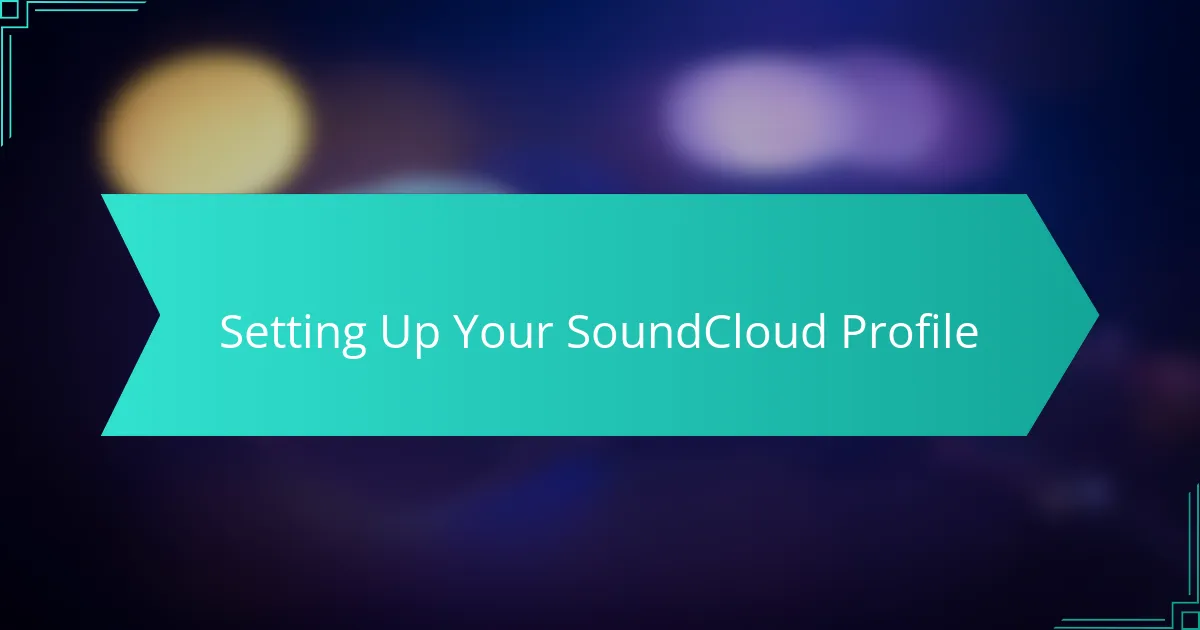
Setting Up Your SoundCloud Profile
Setting up your SoundCloud profile is an important first step in presenting your music professionally. I remember feeling a surge of excitement as I crafted my account, choosing a profile picture that reflected my artistic vibe and writing a bio that truly encapsulated my musical journey. Your profile should be a snapshot of who you are as an artist—what story do you want to tell your listeners?
Once you’ve established your profile basics, it’s time to optimize your tracks. I found it incredibly helpful to add detailed descriptions that explain the inspiration behind my songs. It invites listeners to connect with my music on a deeper level, don’t you think? Including tags related to your genre or mood can also boost your discoverability, allowing others to find your work more easily.
Finally, engaging with other artists on the platform can enhance your visibility. I’m always amazed at how building relationships with fellow musicians leads to collaborative opportunities and invaluable feedback. Have you ever reached out to someone whose music you admire? You might be surprised at how open the SoundCloud community is to networking and support!
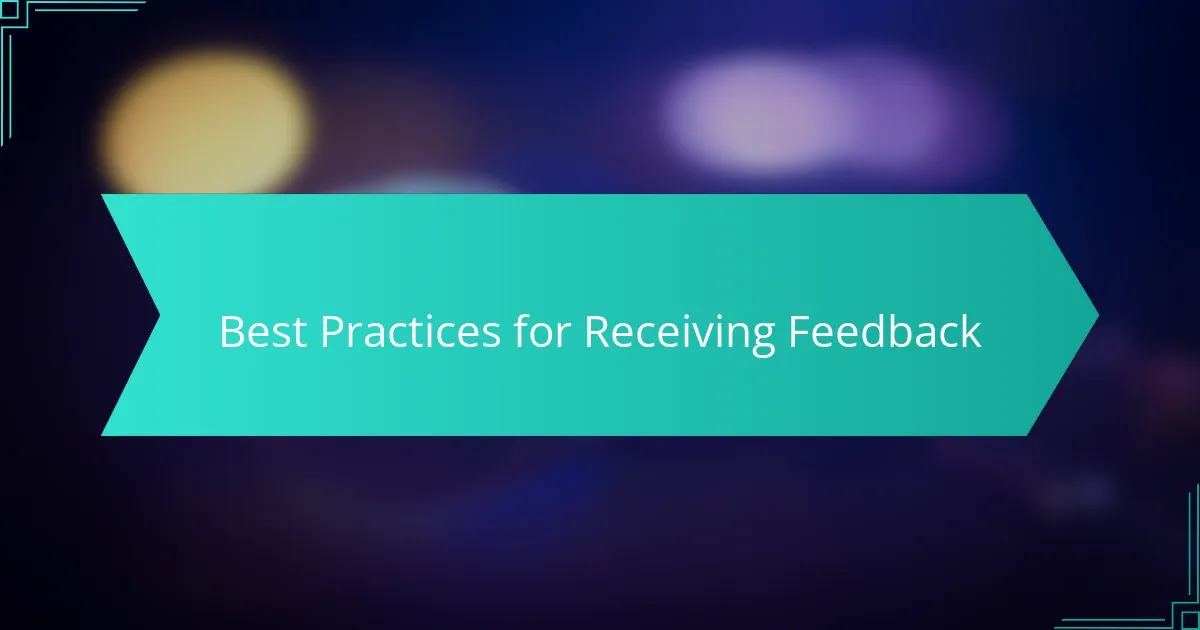
Best Practices for Receiving Feedback
Receiving feedback can feel daunting at first, but it’s important to approach it with an open mind. I remember my early days when I received criticism that, at first, stung a bit. Over time, I learned to appreciate that feedback is a tool for growth; it’s not a reflection of my worth as an artist but rather a guide to refine my craft. When you ask for feedback, try phrasing your request with specificity. Asking for thoughts on particular elements, like vocal clarity or instrumentation, can lead to richer and more helpful responses.
Creating a safe environment is crucial when seeking feedback. I often found it helpful to share my work with trusted friends or fellow musicians who understand my artistic vision. Their encouragement made it easier to accept constructive criticism. Have you noticed how collaboration among supportive peers can create a fertile ground for honest discussions? It’s in these confidential circles that I received some of the most transformative insights about my music.
Lastly, remember to follow up with feedback providers. I’ve noticed that thanking people for their input helps to establish rapport and encourages them to engage with my future work. Plus, when I incorporate their suggestions, I often find a renewed sense of purpose in my music. Does this resonate with you? Engaging in this cycle not only enhances your tracks but also builds a community around your artistry.
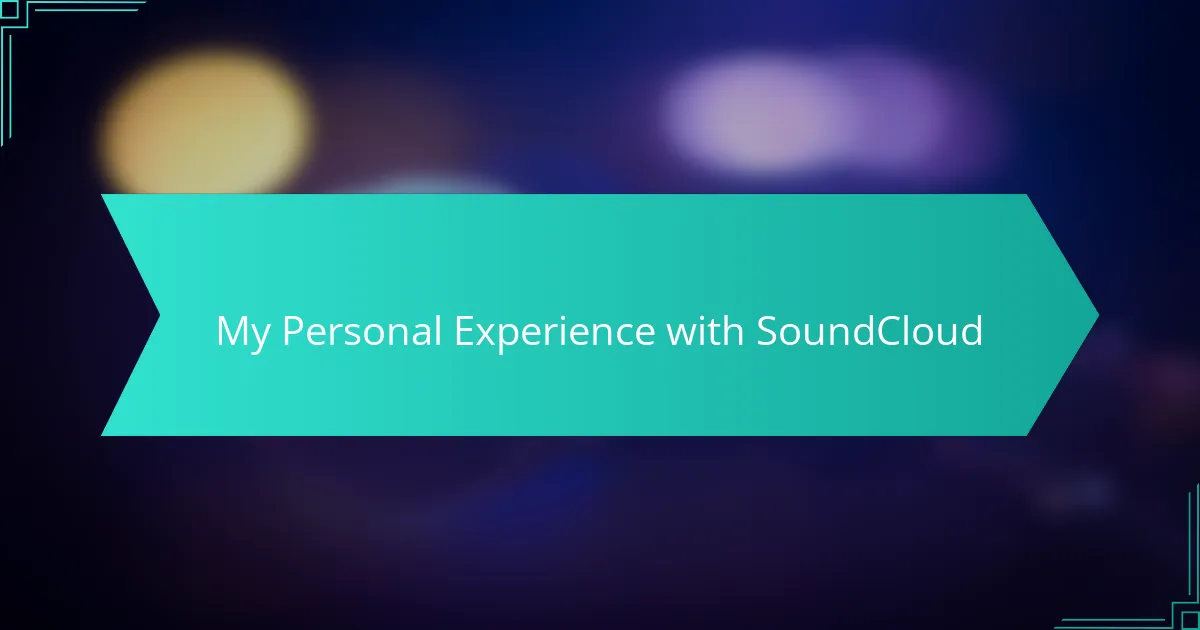
My Personal Experience with SoundCloud
SoundCloud became my canvas for experimentation, where I could showcase my music without fear. I still remember the thrill of hitting that upload button for the first time, heart racing as I waited for reactions. Each comment felt like a mini celebration or a gentle nudge towards improvement, and the chance to see my work resonate with others was exhilarating.
I found that feedback wasn’t just about making my tracks better; it was a mirror reflecting my growth as an artist. One particularly impactful comment pointed out a recurring theme in my music I hadn’t consciously noticed. It made me think, “Wow, how much beauty can be found in our blind spots?” That realization was both humbling and inspiring, igniting a deeper passion for my craft.
Engaging with the community on SoundCloud was another revelation. I recall exchanging thoughts with a fellow artist who was equally eager for growth. This simple connection fostered not only collaboration but also a sense of belonging. Isn’t it amazing how sharing music can lead to finding like-minded souls in the vast world of art? Through these interactions, I learned that feedback isn’t just about criticism; it’s about building a network of support that fuels creativity.
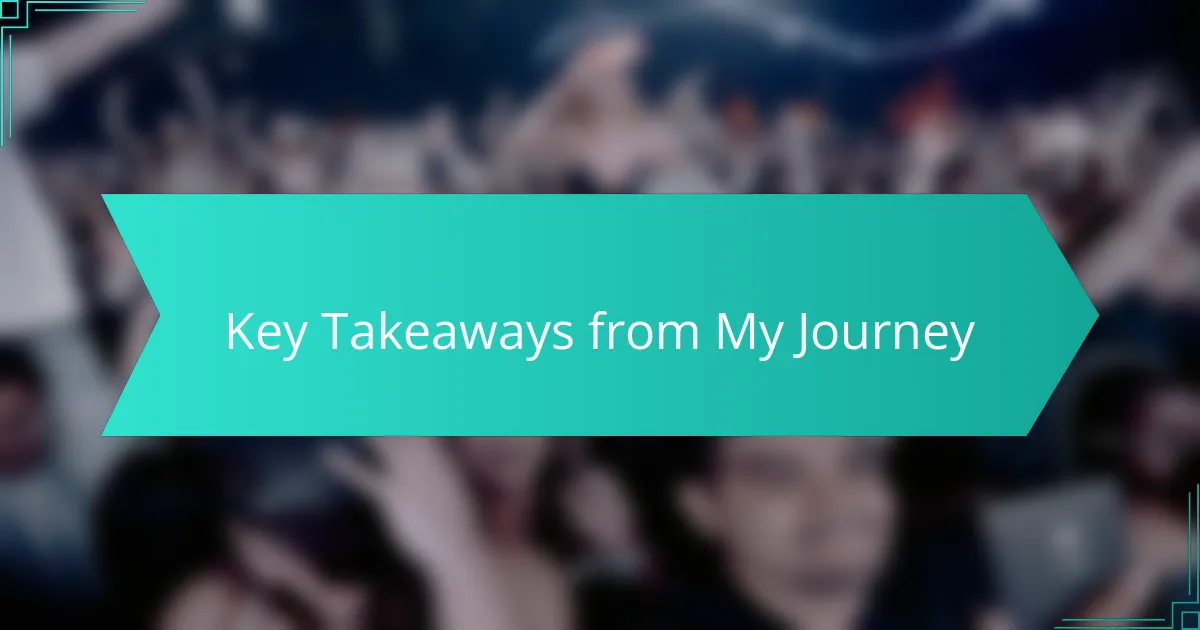
Key Takeaways from My Journey
During my time using SoundCloud, I learned that feedback isn’t just about numbers; it’s about the connections you make and the conversations you spark. I still remember the thrill of receiving a thoughtful comment from a fellow musician, which motivated me to refine my sound and experiment with new styles. Such interactions turned what could be a solitary journey into an enriching community experience.
One of the most enlightening aspects of using SoundCloud was how it changed my perspective on constructive criticism. I realized that genuine feedback could come from unexpected sources, and it’s essential to embrace it. The following key takeaways shaped my journey:
- Engagement Matters: Actively commenting on others’ tracks can lead to reciprocal feedback.
- Diverse Opinions: Listening to a wide range of artists can provide new insights into your own work.
- Feedback Quality Over Quantity: A few thoughtful critiques are often more valuable than numerous superficial comments.
- Be Open-Minded: Every piece of feedback is an opportunity for growth, even if it feels tough to hear initially.
- Community Building: Forming relationships with listeners and other musicians enhances your creative journey.
